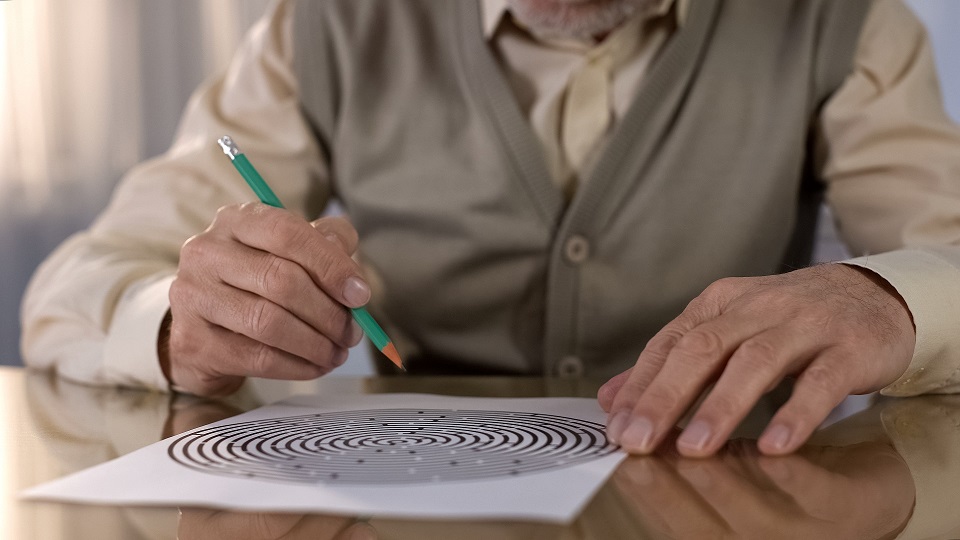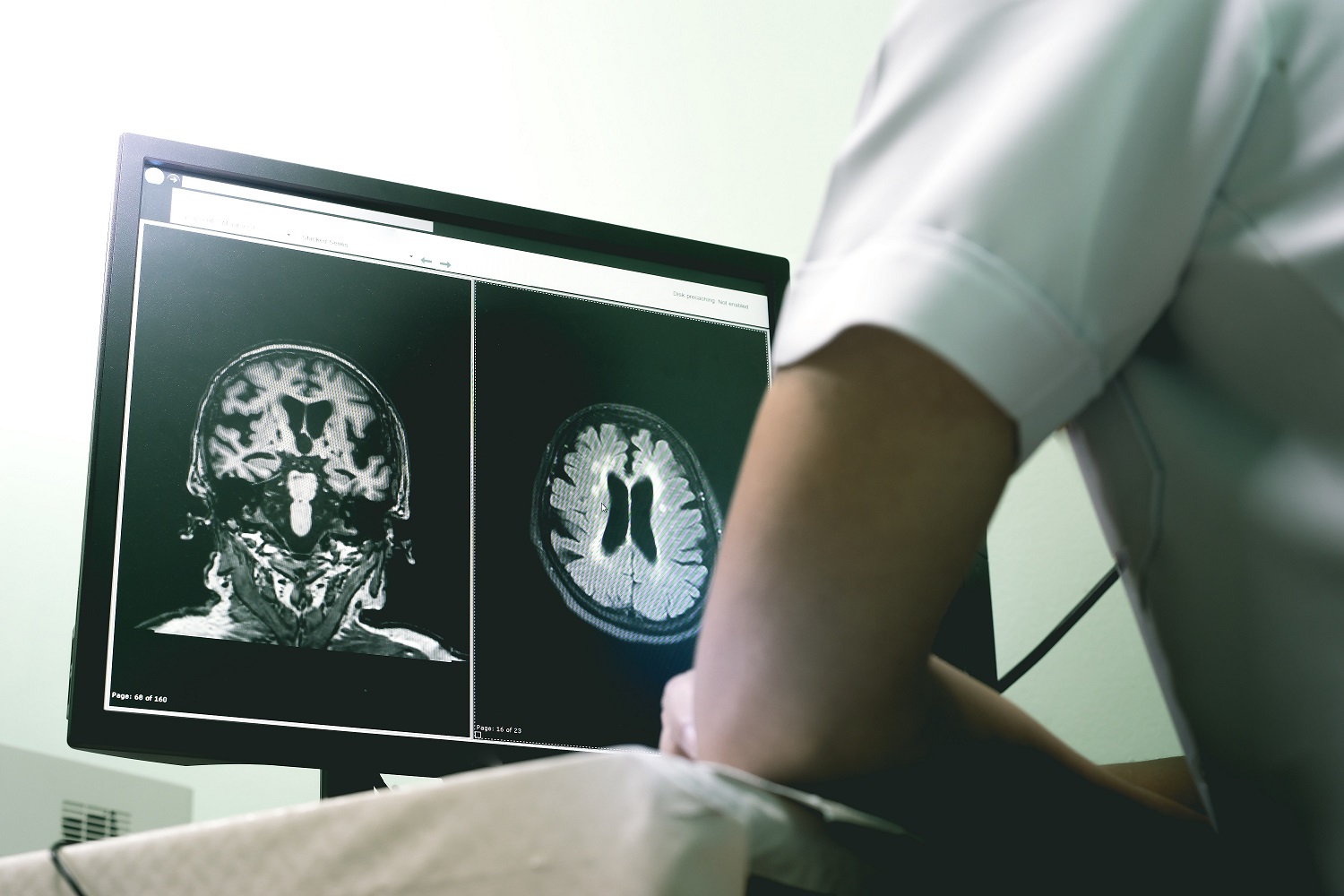
Tests Used in Diagnosing Dementia and Alzheimer’s
Despite its prevalence, dementia is not a normal part of aging and affects millions of people. Alzheimer’s disease is the most common form of dementia, but there are other forms as well. It is crucial to diagnose dementia, particularly Alzheimer’s disease, early in the course of treatment. This process requires the use of tools such as Dementia test and cognitive tests for Alzheimer’s.
Detecting cognitive impairments, memory loss, and other indicators of cognitive decline early allows early intervention. Healthcare professionals can slow down the progression of dementia, enhance the quality of life, and possibly delay the onset of severe symptoms if they diagnose dementia at an early stage. By diagnosing dementia at such an early stage, they will be able to provide appropriate treatment, support, and lifestyle modifications. This article explores tests used in diagnosing dementia and Alzheimer’s test.

Contents
Common Tools to Diagnose Dementia
A single test cannot detect Alzheimer’s or other dementia. For an accurate diagnosis, physicians use diagnostic tools, including neurological exams, cognitive and functional assessments, MRIs, CTs, PETs and cerebrospinal fluid or blood tests.
The following tests are usually performed as part of a dementia assessment:
Personal and Medical History
In most cases, the doctor will discuss your medical history and gather information regarding your memory and thinking changes during the examination.
When a person undergoes a health dementia test, the health care provider will review their medical history, including their psychiatric history and any cognitive or behavioural changes that they have experienced. In addition to any current or past medical problems or concerns, they will want to know about any medications the person takes. As a part of the dementia test, the doctor will inquire about the medical conditions of other family members, such as Alzheimer’s disease or other dementias.
Physical Exam and Laboratory Dementia Tests
There are several other possible causes of dementia, including vitamin deficiency, infection, metabolic disorders, and drug side effects.
Treating these other causes, known as reversible dementias, is often straightforward. Physical examinations, blood tests, and urine tests can be used to rule out these causes of dementia early on.
Lab tests and physical exams can help identify health issues that can cause dementia-like symptoms. These tests evaluate:
- Vitamin B12 deficiency
- Electrolyte balance
- Liver function
- Infection
- Anaemia
- Thyroid function
- Drug interactions and dosing problems
Cerebrospinal Fluid (CSF) Tests for Alzheimer’s
The brain and spinal cord are bathed in CSF, which is a clear fluid. Physicians can sample CSF with a minimally invasive procedure known as a lumbar puncture or spinal tap. Multiple markers associated with Alzheimer’s disease, such as tau and beta-amyloid, may change in CSF levels early in the disease’s course. In neurodegenerative diseases such as Alzheimer’s, neurofilament light (NfL) is also an important marker.
In addition to using CSF tests to diagnose Alzheimer’s, researchers are working on developing and standardizing new markers that will help detect other dementias.
Lumipulse is one of the CSF Amyloid Ratio tests that received FDA approval, and it is a new diagnostic tool that clinicians can use to detect amyloid in CSF, which can indicate brain amyloid changes.

Cognitive Tests for Alzheimer’s
Dementia tests often involve cognitive tests, which can differentiate between different types of dementia. Additionally, they may help diagnose depression, a condition that can exhibit similar symptoms to dementia.
Cognitive tests measure and evaluate cognitive abilities like memory, concentration, visual-spatial awareness, problem-solving, and counting.
To Diagnose dementia, doctors typically use short cognitive screening tests. For a more accurate diagnosis, your doctor may refer you to a neuropsychologist, a psychologist who specializes in measuring cognitive function.
Some of the most common cognitive tests to diagnose Alzheimer’s and dementia are:
- Mini-Cog
- Mini-Mental State Exam (MMSE)
- Functional Activities Questionnaire (FAQ)
- Ascertain Dementia 8 (AD8)
- Neuropsychiatric Inventory Questionnaire (NPI-Q)
- Montreal Cognitive Assessment (MoCA)
Our Top Suggestion: Alzheimer’s App
You can determine whether you are at risk of Alzheimer’s with the Alzheimer’s App. Using this test, you can detect Alzheimer’s and dementia symptoms at their earliest stages. During this dementia test, you will be asked to perform a variety of cognitive exercises and tasks to evaluate your cognitive abilities. All users will find the test easy to use, regardless of their age or background.
Computerized Cognitive Dementia Tests and Devices
Researchers are developing medical devices and technologies to help physicians evaluate cognitive function and diagnose dementia early on. Computerized testing software includes medical devices or digital technologies; these have several advantages, which include giving tests the same way each time.
FDA cleared a medical device called Cognition, for example. The device consists of a headset with electrodes attached to the scalp that measure brain activity responsible for cognition.
Other digital cognitive testing tools have been approved for marketing by the U.S. Food and Drug Administration (FDA):
- CognICA
- Cognivue
- Cambridge Neuropsychological Test Automated Battery (CANTAB Mobile®)
- Automated Neuropsychological Assessment Metrics (ANAM)
Genetic Tests
Genes can play a role in causing some forms of dementia. Doctors can order genetic tests in these rare cases to determine if people have altered genes. In addition to talking with your doctor and family members before and after getting tested, it is essential to consult a genetic counsellor. In addition to genetic tests, there are also genetic tests that look for variations that increase someone’s dementia risk. However, these tests cannot diagnose dementia.
Read more: A Brief Review of Genetic Aspects of Alzheimer’s Disease

Alzheimer’s Test: Brain Imaging
Imaging technologies have revolutionized our understanding of the structure and function of the living brain. Alzheimer’s researchers are studying other brain imaging techniques to diagnose better and track the disease.
As an Alzheimer’s test, doctors usually use structural imaging with magnetic resonance imaging (MRI) or computed tomography (CT). These tests aim to rule out other conditions that may cause symptoms similar to Alzheimer’s but need different treatment. Brain structural imaging can reveal tumours, strokes, severe head trauma, or fluid buildup.
A doctor may use brain imaging tools to determine if the individual has high levels of beta-amyloid, a hallmark of Alzheimer’s; normal levels suggest Alzheimer’s is not to blame.
Discussing your concerns with your doctor is the first step towards a diagnosis.
Final Words
There are millions of people living with dementia, and it is more common as people age, but it is not a normal part of aging.
It is advisable to screen for dementia and Alzheimer’s as soon as possible to slow progression.
For Alzheimer’s tests, physicians use diagnostic tools to diagnose accurately, such as neurological exams, cognitive tests for Alzheimer’s, and brain imaging (MRI, CT, PET).
Can you write more about computerized cognitive tests and devices?
So many conditions mimic dementia symptoms. It is wise to stay checked.
Try not sleeping for two nights in a row! Just kidding, don’t. However, if you have ever struggled with insomnia, you understand the frustration and confusion it can bring.